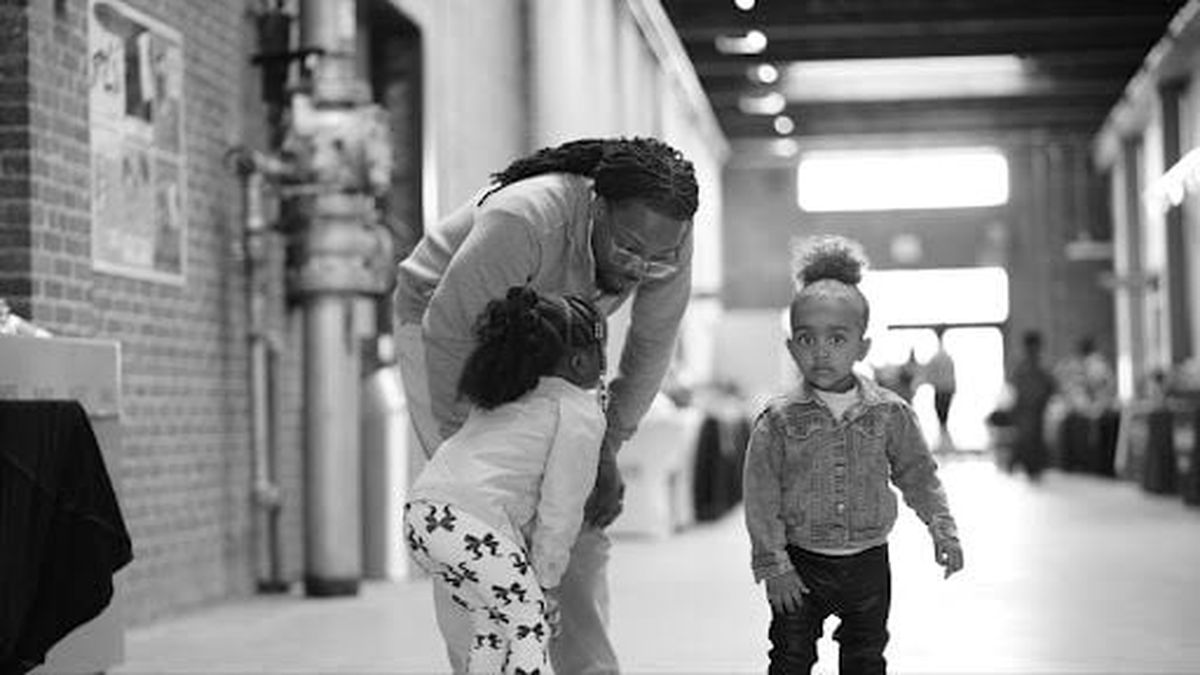In a world that often teaches Black men to armor up, isolate and carry their burdens alone, Locked In Fathers Alliance offers something radically different – community, connection and healing. Founded by Ervin Yashar Jones, the Spokane-based initiative is more than a support group. It’s a movement to break generational cycles, restore emotional wellness, and rebuild the strength of the Black family – one father at a time.
“I started Locked In because I needed it myself,” Jones shares. “This work helps me stay grounded, but it also lets other men know they’re not alone in what they’re carrying.”
A certified peer support specialist, Jones launched the group after noticing the glaring absence of spaces where Black fathers could be open, honest, and vulnerable–without judgment. Rooted in his own story of healing and accountability, Locked In provides a safe haven where Black men gather bi-weekly to process the highs and lows of fatherhood, life, and legacy.
From Hurt to Healing: A Father’s Reckoning
Jones’s journey hasn’t been without struggle. Despite having a present father and grandfather, he didn’t always get it right.
“With my oldest son, I didn’t get the chance to be in his life the way I wanted to,” he says. “Some of that was my doing, and some of it was the system. That hurt ran deep.”
But healing, he explains, started with looking inward and asking “why.”
“There wasn’t a lot of room for expression growing up,” he says. “My dad was a no-nonsense guy. What he said went. You didn’t have an opinion, and your feelings didn’t matter.”
With a decade between his oldest son and his two daughters, Jones has had a second chance to break that mold.
“Now I let my daughters have a voice. I allow them to express themselves, because it’s important. I wish I could’ve done that growing up.”
Brotherhood as a Blueprint
At the heart of Locked In Fathers Alliance is the idea that vulnerability is not weakness – it’s a gateway to freedom.
“We’ve been taught not to trust each other, not to ask for help. But healing requires trust,” Jones says. “We’ve got to come together and talk about these things. That’s how we build.”
The group emphasizes trust, integrity, and emotional literacy – concepts that are often absent in male-centered spaces, especially for Black men.
“We don’t come together enough on the positive,” Jones notes. “Only on the negativity. We need to talk about what’s really going on in our minds. That’s how we grow.”
His words speak to the heart of what Locked In represents: “We’re just fathers trying to figure it out. And when we realize we’re not alone, that’s when the healing starts.”
Work of Emotional Literacy
Jones is open about his own struggle with depression, anger, and the internalized pain of a system that too often fails Black men.
“I didn’t understand who I was at the time, and it took a toll on my mental and physical health,” he says. “But I started learning how to forgive myself. That’s what this journey is about – grace.”
One of the group’s most powerful interventions is emotional intelligence.
“We’re reactors,” he says. “If something happens, we explode. But emotional literacy teaches us there’s another way. You don’t have to be the hardest person on Earth. You can feel. You can cry. That’s strength too.”
Bringing in Black mental health professionals has been key to making these conversations accessible and relatable.
“I’m a stickler for inviting somebody who looks like us,” Jones says. “Because sometimes, we can’t receive the message if we don’t see ourselves in the messenger.”
Wounds to Wisdom: Calling Home the Black Family
The goal is not just personal transformation – it’s collective restoration. Jones believes the survival of the Black family depends on a return to unity.
“We need to put the same emphasis on the Black man as we do on the Black woman,” he says. “Because it’s the family that matters, and right now, the Black family is under attack.”
He speaks with conviction: “The world doesn’t tick without us. In order to keep this world afloat, the Black family has to stay together and keep building.”
Legacy of Freedom and Grace
Though the movement is growing, Jones remains humble about his role.
“If you had seen me a few years ago, you wouldn’t recognize me,” he admits. “I’ve done all of this organically. This space wasn’t just for the fathers – it was for me, too. It’s what keeps me alive.”
And what does he hope Locked In leaves behind?
“I just want it to be whatever they need it to be,” he says. “A place to heal. A place to breathe. A place where brothers can show up exactly as they are – and still be loved.”
